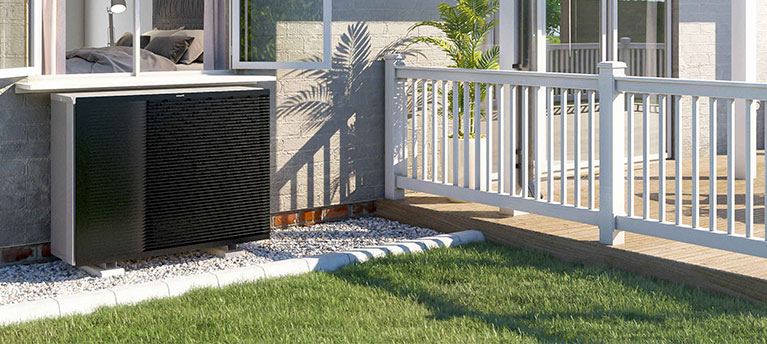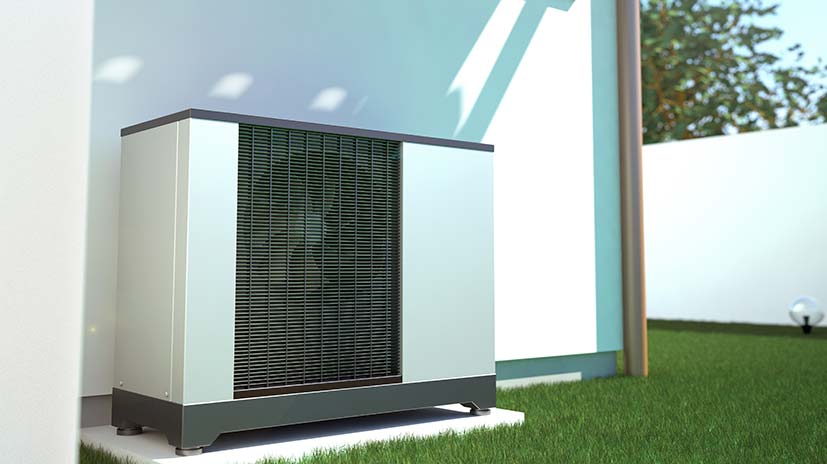

Are air source heat pumps worth it?
Are air source heat pumps worth it?
If you care about living sustainably, how you heat your home and water is something that you may want to consider. But finding the best solution isn’t always straightforward.
Boilers are by far the most common way to heat UK homes and new efficient boilers are well worth considering if you want a traditional option that can help you save money on your energy bills.
But if you’re looking for an alternative option, maybe think about installing an air source heat pump. Air source heat pumps are a great, energy efficient choice for heating your home and water and as well as being low maintenance, they can help to cut your heating costs and lower your carbon footprint.
So how do you know if one is right for you and your home? Discover whether air source heat pumps are worth it for you and your home in our guide.


What exactly is an air source heat pump?
An air source heat pump is a renewable energy system that uses the heat from the air to provide your home with heating and hot water. It works in a similar way to a fridge but in reverse.
A liquid contained in the heat pump absorbs the heat from the air, then the system compresses it in order to increase the temperature. This heat is then transferred into your central heating and hot water system ready to be transferred around your home.
Installation is simple, with an external component close to the wall outside your home, feeding into the internal component that’s connected to your heating and hot water system.
Why should you consider buying one?
An air source heat pump is a more sustainable option than oil or gas heating and it uses the electricity more efficiently than other heating systems. So overall, it’s a more energy efficient solution to heating your home.
An air source heat pump system could help to lower your energy bills, especially if you currently have an electric heating system or heat your home using LPG or oil.


How much does an air source heat pump cost?
Heat pump costs will vary depending on your home’s requirements but as an example, the average cost for a four bedroom house is around £11,000. But remember you could earn a large proportion, if not all, of the investment costs back over seven years through the government's Domestic Renewable Heat Incentive. This scheme will pay you every three months for the first seven years of your new heating system's life, based on the amount of renewable heat generated by your home.
These systems also require minimum maintenance and they can generate heat all year round as they work at temperatures down to -15oC.
How do you know if it's right for your home?
Any kind of home with some outdoor space can benefit from an air source heat pump, but here are other things to consider to help you decide if it's right for you.
- Although the outdoor unit is unobtrusive, it will need enough space around it to get good airflow and if it can be in a sunny spot then even better.
- While an air source heat pump can be connected to your existing radiators, they won't get as hot as they would if heated by gas or oil. Air source heat pumps work really well with underfloor or warm air heating systems because they operate at lower temperatures.
- As air source heat pumps operate at lower temperatures to ensure your home is going to be warm enough you need to make sure that it's properly insulated to keep the heat inside.
So, if you're looking for a reliable heating source, as well as a way to cut your heating costs and reduce your carbon footprint, an air source heat pump could be worth it.
We also offer 100% renewables-backed electricity as standard and at no extra cost1, giving you further peace of mind that the electricity you do use to power your air source heat pump is from a renewables-backed source.
1.Electricity sourced from E.ON’s renewable generation assets, supply agreements with independent UK wind generators and the purchase of renewable electricity certificates. The electricity supplied to your homes comes from the National Grid. Find out more at eonenergy.com/renewable
